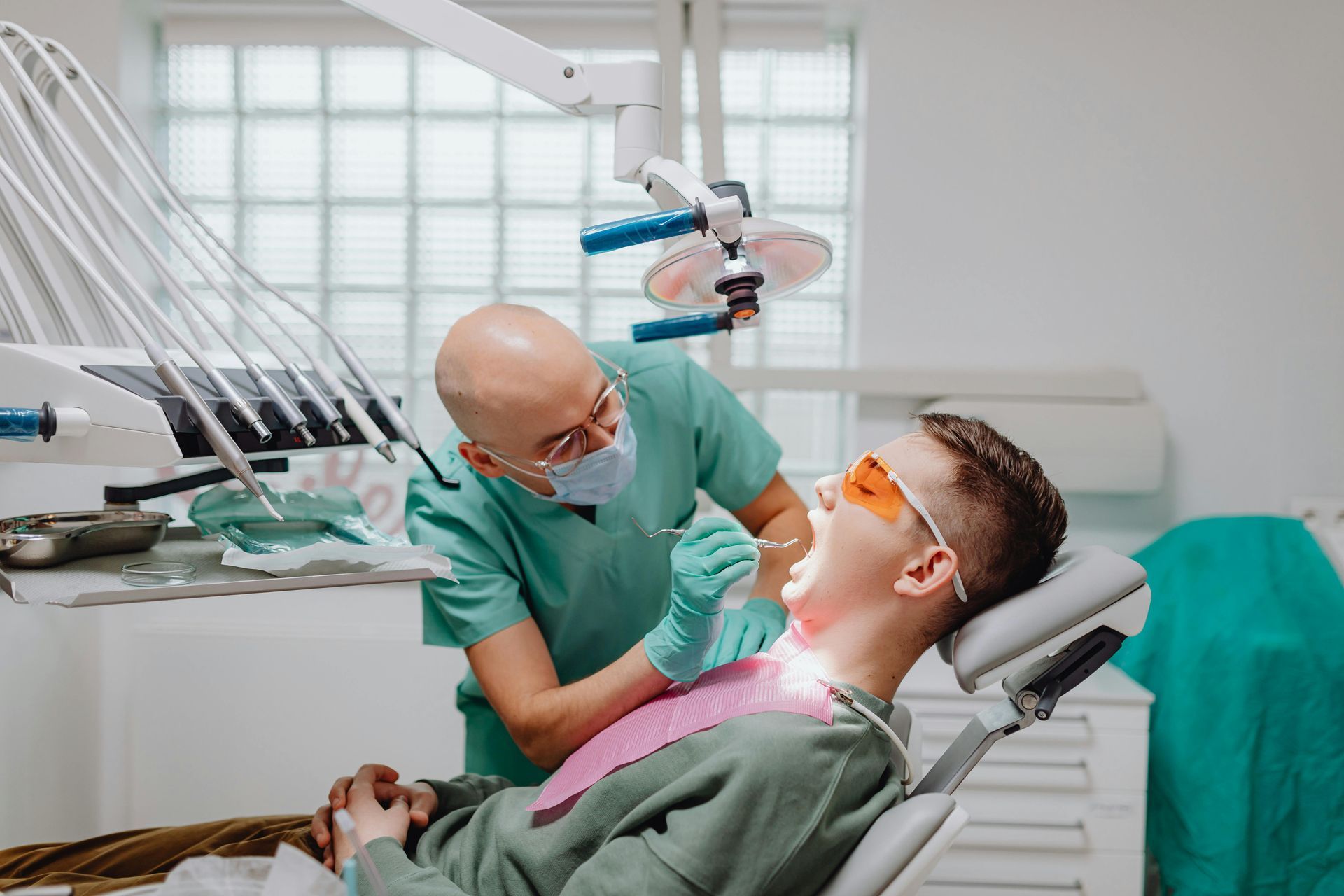Problems from a Chipped Tooth
Problems from a Chipped Tooth
You finished your cold beverage and are left with just the ice. You start crunching away on the cold cubes when all of a sudden, CRACK! That little piece you just chomped on isn’t ice, it is a piece of tooth! 😱
A chipped tooth is common for adults and children. It’s actually quite easy to chip a tooth despite the fact that enamel is the hardest, most mineralized tissue of the body. Besides from biting on something hard or falling and hitting your mouth at the right angle, dental conditions like tooth decay or night teeth grinding (bruxism), can also cause a tooth to chip. If you have recently chipped tooth, it’s important to know about potential problems from a chipped tooth.
Problems From a Chipped Tooth – What You Need to Know
What Happens if You Don’t Repair a Chipped Tooth?
A little chip on a tooth may not seem like a big deal, especially if it is a molar that no one can see. Smaller chips are usually not problematic unless they are sharp, then they could possibly cut your mouth. However, if your chip is significant enough, it could lead to more serious problems such as pain, hot/cold sensitivity, bad breath, swollen glands, and even infected roots.
Sharp edges can cut your cheek, tongue, and gums
Deep chips can impact the root of the tooth, leading to potential infections or tooth aches
Deep chips can cause tooth decay resulting in sensitivity and bad breath
Chips of all sizes can grow bigger and cause larger issues resulting in the need for root canals or extractions
When do you need to repair a Chipped tooth?
Problem from a chipped tooth - See Your Dentist if You Chipped a Tooth
You should always visit the dentist when you chip a tooth. For minor chips, you typically won’t need a major repair. More often than not, the dentist Chicago can just file the chipped tooth or fill it with a dermal bond so it looks normal again. However, more significant cracks can require more extensive dental work.
If a chip is significant enough, it can damage the pulp that is inside the tooth. The dental pulp is the center of your tooth, made up of living tissue, blood vessels, nerves, and connective tissue.
Damage to the pulp can be extremely painful and, if untreated, can become infected. If this happens, you could be in for more extensive dental work.
How Does Your Dentist Fix a Damaged Tooth?
For minor chips, the dentist may only need to smooth the rough edges or fill with a dermal filling that matches your tooth. Severe chips that do not damage the root or pulp may require a cap or crown to protect the tooth from future infections. In situations where the pulp or root is damaged, you may first need a root canal before a crown or cap is placed over the tooth.
How to Prevent a Chipped Tooth?
Chewing Hard Objects can chip teeth - Problem from a chipped tooth
Maintaining good oral hygiene is the first step in preventing a chipped tooth. Making sure you have no cavities or tooth decay can help keep your tooth enamel strong.
Your dentist can also help fit you for a mouthguard if you play sports. Athletes are prone to injury, especially in the face. Protective gear can help save teeth from sustaining injury.
If you have nervous habits like biting your nails or chewing on your pen cap, you may want to switch to something a little less prone to accidents, like squeezing a stress ball.
Finally, you should try to avoid hard candies and chewing ice. We understand a hard candy here and there is a nice treat. If you cannot resist the sweet tooth, avoid the temptation to bite and break the candy.
Sometimes it is not easy to prevent chipping a tooth. However, with good oral hygiene, making a few changes to your nervous habits, and even diet, you can help keep your teeth strong and chip-free.
Don River Dental is a full-service family dental clinic located at 1396 Don Mills Rd
(between York Mills and Lawrence, north of Shops at Don Mills). Give us a call today at 416 901 9292
or visit our HOMEPAGE to see how we can help you and your oral health.
Problems from a Chipped Tooth. 1stFamilyDentalBlog. September 15,2018

Persistent Toothache: When Pain Becomes Unbearable Experiencing a persistent toothache can be an alarming sign that requires immediate dental attention. Tooth pain might seem manageable at first, but when it escalates to severe toothache, it becomes unbearable and signals the need for prompt treatment. Warning Signs to Watch: Severe Pain: Pain that does not subside with over-the-counter pain relievers. Warm or Cold Sensitivity: Heightened sensitivity when eating or drinking hot or cold substances. Bad Taste: A constant bad taste in your mouth may indicate an infection. If you encounter any of these symptoms, it's vital to visit an emergency dentist. Immediate dental care helps maintain oral health and can prevent persistent dental emergencies. Thus, never underestimate the importance of promptly addressing a severe toothache. Extreme Tooth Sensitivity: Sudden or Chronic Extreme tooth sensitivity can be both sudden or chronic, causing discomfort and possibly leading to severe dental issues if not addressed promptly. Understanding the underlying causes is crucial for timely treatment. Here are key facts you should know: Common Symptoms: Sharp Tooth Pain: Often triggered by hot, cold, acidic, or sweet foods and drinks. Persistent Discomfort: Even when not eating or drinking. When to See a Dentist: Severe Pain: Signaling a possible serious dental issue. Toothache: Especially if it is frequent and intense. Loose or Broken Tooth: Emergency dental care may be necessary. Preventive measures, such as maintaining oral health with proper hygiene and avoiding overly acidic foods, can reduce the risk of sensitivity. If you're experiencing persistent sensitivity or any other dental emergencies, seek professional dental attention promptly to explore treatment options. Swollen or Bleeding Gums: A Sign of Trouble Swollen or bleeding gums can be a significant warning sign of gum disease, an oral health issue that requires prompt dental attention. Many might overlook minor bleeding during brushing, but if this symptom persists, it is essential to consult a dentist immediately. Gum disease, in its early stages, is known as gingivitis and can progress to more severe dental issues if left untreated. Here are some alarming symptoms to watch for regarding your gums: Persistent Swelling : Constant inflammation can be a precursor to severe gum disease. Frequent Bleeding : If your gums bleed regularly, even without brushing aggressively, it indicates an underlying issue. Bad Taste or Bad Breath : Persistent bad breath or a bad taste in the mouth signals bacterial accumulation, which may stem from gum disease. Immediate Measures to Take: Practice proper oral hygiene with thorough brushing and flossing. Rinse with warm water to reduce inflammation and bacteria. If you're experiencing these symptoms, it might be time to seek dental care. Early and timely treatment can prevent tooth loss, jaw pain, and more severe dental emergencies. Always prioritize oral health and consult with a dental professional to explore treatment options. Jaw Pain or Clicking: Potential TMJ Concerns Jaw pain or clicking might seem minor, but they can be potential indicators of Temporomandibular Joint (TMJ) concerns. Understanding these warning signs is crucial for maintaining your oral health. Common TMJ Symptoms: Persistent pain in the jaw area Clicking or popping noises when opening or closing the mouth Difficulty or discomfort when chewing A change in the way the upper and lower teeth fit together These symptoms warrant prompt dental attention to prevent further complications. An emergency dentist can assess the severity of these signs, providing timely treatment to relieve discomfort and prevent tooth root damage or additional dental issues. Potential Causes: Teeth Grinding - Often occurring unconsciously during sleep Arthritis - Affecting the temporomandibular joint Jaw Injury - Resulting from an accident or direct impact Maintaining good oral hygiene and regular dental care can help prevent TMJ disorders. If any of these symptoms arise, consider warm water rinses and consult a dental professional to explore treatment options. Timely treatment can mitigate severe pain and ensure better oral health. Always prioritize getting dental attention if you experience these warning signs. Loose, Cracked, or Knocked-Out Teeth: Act Quickly Loose, cracked, or knocked-out teeth are dental emergencies that demand immediate attention. Quick action can mean the difference between saving and losing a tooth. Loose Tooth in Adults: If you notice an adult tooth becoming loose, it’s a significant warning sign of potential gum disease or tooth root issues. Visit an emergency dentist without delay for prompt treatment. Cracked Tooth: A cracked or broken tooth exposes the sensitive tooth root and can lead to severe pain or even infection. Rinse your mouth with warm water, and contact your dentist immediately for dental treatment. Knocked-Out Tooth: Time is critical. If a tooth is knocked out, gently rinse it with warm water, place it back in the socket if possible, or submerge it in milk. Seek emergency dental care within an hour for the best chance of saving the tooth. Here's a quick checklist for handling these situations: Rinse gently with warm water. Recover the tooth or tooth pieces, if applicable. Seek timely treatment from an emergency dentist. These dental issues require swift action to ensure sustained oral health and effective treatment options. Never ignore the warning signs, as timely intervention is key. Dental Abscesses: The Hidden Infection A dental abscess is a serious oral issue that often lurks unnoticed until it becomes a dental emergency. It's a pocket of pus caused by a bacterial infection, typically forming inside the tooth or gums. If left untreated, it can lead to severe tooth pain and other complications. Warning Signs of a Dental Abscess: Severe Toothache: Persistent, throbbing pain that can radiate to the jaw, ear, or neck. Swelling: Noticeable swelling in the gums or face. Bad Taste: A constant foul taste or bad breath due to pus drainage. Fever and Malaise: Feeling generally unwell or feverish. Prompt dental care is crucial. Use warm water to rinse your mouth and reduce discomfort while seeking an emergency dentist for timely treatment. Ignoring warning signs can lead to more severe dental issues and possible tooth loss. Always prioritize oral hygiene to prevent such dental emergencies. Changes in Gum Color, Texture, or Shape: Periodontal Red Flags Changes in gum color, texture, or shape can be significant warning signs of gum disease and require immediate dental attention. Healthy gums should be pink, firm, and fit snugly around your teeth. Any deviations from this norm could indicate underlying dental issues. Possible Warning Signs: Red or Swollen Gums : Can indicate inflammation or infection. Bleeding Gums : Often a sign of gum disease, especially after brushing or flossing. Receding Gums : This could expose your tooth root and lead to sensitivity or even tooth loss. Soft or Tender Gums : May signal a severe stage of gum disease. Prompt treatment can prevent further complications such as tooth decay or even tooth loss. It's crucial to see an emergency dentist if these changes persist. Maintaining optimal oral hygiene and scheduling regular dental care appointments are key to preventing these periodontal issues.Act quickly if you notice any of these changes to ensure your oral health remains in optimal condition. Persistent Bad Breath or Metallic Taste: Unseen Dental Issues Experiencing persistent bad breath or a metallic taste in your mouth can be more than just a social inconvenience; these are often warning signs of underlying dental issues. A metallic taste can indicate issues such as gum disease or tooth decay. When bacteria accumulate due to poor oral hygiene, they can lead to infections, causing a sour or metallic taste. Similarly, chronic bad breath (halitosis) can suggest serious concerns like dental decay, gum disease, or even dry mouth—a condition where insufficient saliva leads to harmful bacteria growth. Check these potential signs: Persistent bad breath: Could be a sign of gum disease or tooth decay. Metallic taste: Might indicate oral infections or poor dental hygiene. Signs of dry mouth: Reduced saliva can lead to bacterial growth. In such cases, immediate dental attention is crucial. An emergency dentist can offer prompt treatment options to mitigate further damage, ensuring your oral health is restored with timely treatment. Make sure to ensure regular dental visits to address these concerns proactively and maintain optimal oral hygiene. Dry Mouth: The Silent Cavity Culprit Dry mouth, also known as xerostomia, might seem like a minor inconvenience, but it can be a silent trigger for more serious dental issues. Saliva plays a crucial role in maintaining oral health by neutralizing acids and cleaning food particles. When saliva production decreases, it increases the risk of tooth decay and gum disease. Warning Signs of Dry Mouth: Persistent thirst Trouble swallowing Bad breath Thick or stringy saliva A constant dry feeling in the mouth If you experience severe toothache or other symptoms like jaw pain or a bad taste that accompanies dry mouth, seek timely dental attention. An emergency dentist can provide prompt treatment to alleviate discomfort and prevent further dental damage. Remember, maintaining good oral hygiene and staying hydrated are essential steps in combating this silent cavity culprit. Seek dental advice if persistent issues arise, as timely treatment is crucial for minimizing long-term complications. Conclusion: Protecting Your Oral Health Through Awareness It is crucial to stay informed about the warning signs that you need to see a dentist immediately. Recognizing these signs can mean the difference between quick recovery and complicated dental issues requiring extensive treatment. Common Warning Signs: Severe Toothache Persistent Jaw Pain Bad Breath or Bad Taste Loose or Knocked-Out Tooth Severe pain from a Broken Tooth Dry Mouth Ignoring these symptoms can escalate into serious problems like tooth decay or gum disease, which might eventually lead to tooth loss or require emergency dental care. Ensuring prompt treatment for these symptoms can prevent long-term damage and more invasive dental procedures. Simple Tips for Oral Health: Maintain good oral hygiene by brushing and flossing daily. Rinse with warm water to alleviate discomfort. Schedule regular dental check-ups. Awareness is your first line of defense in protecting your oral health. By staying vigilant and seeking timely treatment, you safeguard not only your teeth but also your overall well-being. Prioritize dental care to ensure a healthy, confident smile. At Don River Dental we give you the best tips . If you are experiencing any symptoms or pain please feel free to call us at (416) 901 - 9292 and someone from our team will be happy to answer any questions and schedule an appointment as soon as possible. We offer safe soothing dentistry in North York.











